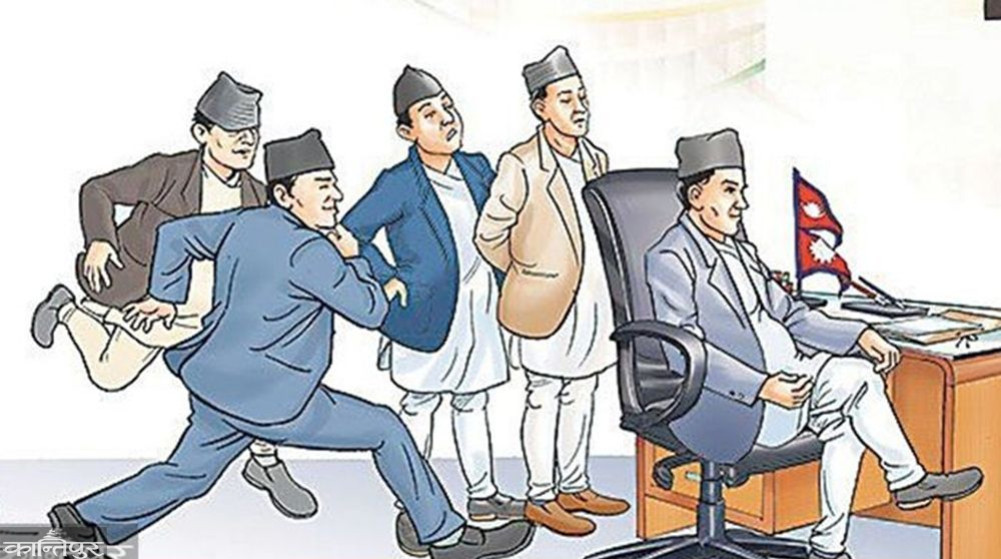Concerns about security and relief in foreign employment
We use Google Cloud Translation Services. Google requires we provide the following disclaimer relating to use of this service:
This service may contain translations powered by Google. Google disclaims all warranties related to the translations, expressed or implied, including any warranties of accuracy, reliability, and any implied warranties of merchantability, fitness for a particular purpose, and noninfringement.


With the dream of raising the economic level of the family and educating and raising their children well, Nepali youth are looking for foreign employment. But very few can get the job and salary benefits as imagined. Some people fall into the hands of brokers and get stranded as soon as they reach the destination country.



Some people get jobs that require hard work but are not paid accordingly. Some do not get regular salary. Some come back with disfigurement
. Some die there due to accidents or other reasons. Bereaved families have to face many procedural hurdles for relief, yet most are left empty-handed. This problem has been there ever since Nepali youth started going for foreign employment.
The main labor destinations for Nepalese youth are the Gulf countries and Malaysia. The problems faced by Nepali workers are also more in those countries. It is not that there is no initiative from the government to make foreign employment safe and orderly, there is some improvement but it is not enough. The urgent need for reform is related to the protection of workers' lives and relief to dependent families in the event of death. In the last 15 years alone, at least 11,760 Nepalis have lost their lives in the Gulf and Malaysia. But among them, only 2,269 workers i.e. 19 percent of their families who were injured in road and workplace accidents could get relief. They also had to complete many procedures of case matters, had to wait for months. Another 81 percent of the workers' families were left empty-handed due to the narrow scope of insurance.
The workers are dedicated to the respective company from the time they are recruited abroad. They live in the company's camp. The company is monitoring them round the clock. But the working period is insured only for eight hours. That is why dependent families are not getting relief in death other than road and workplace accidents. According to the Foreign Employment Board's 15-year data, heart attacks and heart diseases were the main cause of about 20 percent of deaths in the Gulf and Malaysia. Those who committed suicide were 11 percent. About 20 percent showed natural deaths. Relief was not provided to the families of 213 people who died in the Corona epidemic. If a worker dies, there is a tendency to prescribe the cause without sufficient investigation.
In order to claim relief after the death of a worker, the Nepalese embassy must file a case in the court through the local lawyer of the respective country. Only after winning the case, the dependent family gets relief according to the laws of the destination country. In that too, a certain percentage has to be paid to the lawyer. Some workers' families do not submit claims because they have to complete such a lengthy process and relief is not guaranteed.
Nepalese youth have gone abroad to do labor without finding or finding reliable employment/self-employment within the country. Moving to the Gulf or Malaysia in search of work is more of a compulsion than an ambition for many. It is most important for the government to create jobs in the country and create a reliable environment for self-employment. But both these situations are not immediately possible from the government. Therefore, the government needs to pay special attention to safety management of Nepali workers at least in labor destination countries. This is a concern that millions of Nepalis are connected with. About 1.7 million Nepalis are employed in the Gulf and Malaysia alone. The remittances they send are boosting the country's economy.
For Nepalis who have gone abroad to work, life protection, responsibilities and facilities according to the contract, regular payment of wages and round-the-clock insurance should be ensured. After bringing in the workers by making an agreement at the government level, the entire responsibility should be on the government and the employing company. The procedure for granting relief in case of death of a worker should be simple and unconditional. For that, a strong diplomatic initiative is needed from the Nepalese government. Claiming compensation or relief is problematic if the worker is illegally present. Therefore, the workers should be encouraged to go to the destination country only through the valid process after taking the work permit and for the regular renewal of the work permit and visa.
 प्रकाशित : जेष्ठ २९, २०८१ ०७:४२
प्रकाशित : जेष्ठ २९, २०८१ ०७:४२

 २१.१२°C काठमाडौं
२१.१२°C काठमाडौं
















